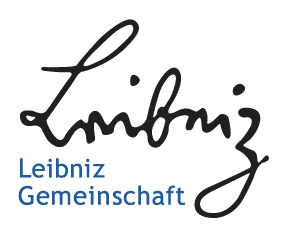SUCHO x NFDI4Culture: joining forces to save Ukrainian cultural heritage
SUCHO and NFDI4CULTURE coordinate donations of digitization equipment to Ukrainian libraries, archives and museums with partners from Germany, Sweden and Poland
We hereby build on the press release of ADW Mainz and add further background information, in particular on the role of TIB and the Open Science Lab in the initial stages of the collaboration, as well as further connections with SUCHO and Europeana.
Every day, Ukrainian libraries, archives and museums are being destroyed by the Russian Armed Forces. In order to preserve the country’s cultural heritage, Ukrainian cultural institutions urgently require assistance to digitize as many of their holdings as possible. Over the last few months, the international volunteer initiative SUCHO (Saving Ukrainian Cultural Heritage Online) has been widely acknowledged as a vital fast-responder in the race to preserve Ukrainian digital heritage – websites, online publications and databases from the country’s numerous cultural, educational and other significant civic institutions. This rich trove of online heritage is now stored and cared for in a distributed manner by a large, international group of librarians, researchers and technologists.

TIB’s Open Science Lab contacted SUCHO to offer infrastructural support for their web archive collections and the corresponding metadata. This contact was made in the context of NFDI4Culture, where the development of infrastructure for cultural heritage plays an important role in the German research landscape. Following positive feedback from SUCHO‘s founders, the connection was extended through discussions with Professor Torsten Schrade, spokesperson for the NFDI4Culture consortium and head of the Digital Academy at the Academy of Sciences and Literature, and with Prof. Dr. York Sure-Vetter, Director of the NFDI. Since then, the NFDI has provided computing resources to SUCHO and begun discussions on how to better integrate NFDI4Culture’s research infrastructure into the collaboration.
In the last few weeks, the collaboration has taken concrete shape: SUCHO are partnering with NFDI4Culture, a consortium for research data on material and immaterial cultural heritage in the German National Research Data infrastructure, and the Swedish National Library to offer support to Ukrainian cultural heritage institutions in digitally preserving material heritage on the ground. The special focus of this new partnership is supplying digitization equipment directly to the institutions that need it. Additional conversations with representatives from Ukraine’s Ministry of Culture and the Ukrainian Library Association, as well as UNESCO and the Polish National Institute for Cultural Heritage, are providing the logistical links to getting the equipment safely via various supply chains into Ukrainian territory.
Already in the first week of the Ukrainian war, Prof. Dr. Sören Auer, Director of the TIB, had created an unbureaucratic shelter and working place for refugee Ukrainian researchers. Dr. Maryna Nazarovets from the Maksymovych Scientific Library, Taras Shevchenko National University of Kyiv came to TIB in Hanover in March 2022 as the first of seven visiting researchers from Ukraine who have since been awarded a scholarship. There she initially started her fellowship at the Open Science Lab (OSL) and after a few months was integrated into NFDI4Culture thanks to the initiative of Prof. Dr. Ina Blümel.
Ukrainian researchers and members of the library community we will happily provide shelter as guest researchers @TIBHannover. DM me if we can help in any way.
— Sören Auer 🇪🇺🇺🇦 (@SoerenAuer) February 25, 2022
Helpdesk matching donating institutions with those in need
A process of alignment and careful coordination is crucial in bringing together the institutions that need the equipment with those willing to donate. NFDI4Culture is participating in this effort by leveraging the expertise pooled in the consortium and providing a dedicated Helpdesk that matches donating institutions with those in need, as well as providing technical advice and training. The effort is coordinated by NFDI4Culture Task Area 1: Digitization and Enrichment of Digital Cultural Assets. „It is only possible to do this work by having staff with a background in GLAM and at the same time the necessary Ukrainian language skills, and we are very grateful that we were able to fill this important role with Maryna Nazarovets ,” explains Blümel, who coordinates TIB’s contribution to NFDI4Culture.
SUCHO members Andreas Segerberg from the Society of Archives and Records Management in Sweden and Lars Ilshammar, Deputy National Librarian of Sweden, are providing additional support to these matching efforts in the development of a dedicated system for keeping track of equipment needs and availability.
SUCHO’s co-founder, Sebastian Majstorovic from the Austrian Centre for Digital Humanities and Cultural Heritage and lead organizer of this new digitisation equipment task force, says the following about the goals and intended outcomes of the efforts: “The digitization of cultural heritage is not a luxury, but an urgent necessity – especially in times of war. Ukrainian libraries, museums and archives need digitization equipment and training now. The task force formed by SUCHO and NFDI4Culture will seek to bring together the international partners, who have the means to donate equipment, time and money to safeguard Ukraine’s national memory.“
This productive collaboration is expected to extend beyond the borders of Germany, Sweden, Poland, and Ukraine to include many more partners from Europe, thanks to a new effort to coordinate activities within Europeana, as well. A special working group in Europeana aims to coordinate pan-European initiatives to support cultural heritage preservation in Ukraine and to create a pathway to aggregate data in the Europeana repository. Sebastian Majstorovic, representing SUCHO, and Lozana Rossenova, representing NFDI4Culture and TIB’s Open Science Lab, were elected to the Working Group’s Steering Committee and plan to integrate the NFDI4Culture Helpdesk more centrally into the Europeana platform and ongoing support activities.
Ukrainian cultural institutions who need donations of digitization equipment and international partners who can offer donations should write to the NFDI4Culture Helpdesk or equipment@sucho.org. If you would like to support the digitization effort financially you can also do so directly via the dedicated OpenCollective page.
About the National Research Data Infrastructure (NFDI)
The National Research Data Infrastructure (NFDI) initiative aims to systematically make valuable data from science and research accessible, linked and usable in a sustainable and qualitative manner for the entire German science system. The federal and state governments plan to fund a total of up to 30 consortia with up to 90 million Euros. The TIB has played a key role in setting up various NFDI consortia since the very beginning.
Dr. Lozana Rossenova ist Mitarbeiterin im Open Science Lab der TIB und arbeitet im Projekt NFDI4Culture in den Bereichen Datenanreicherung und Entwicklung von Wissensgraphen. // Dr Lozana Rossenova is currently based at the Open Science Lab at TIB, and works on the NFDI4Culture project, in the task areas for data enrichment and knowledge graph development.


